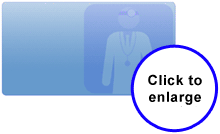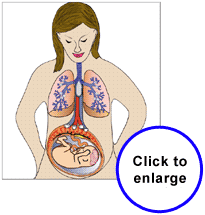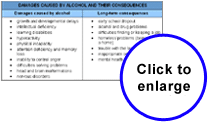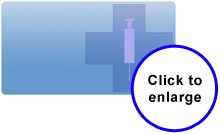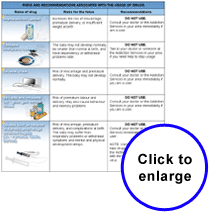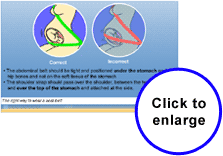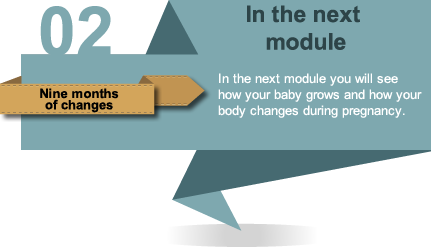A Healthy Beginning
INTRODUCTION
 You are pregnant? Congratulations!
You are pregnant? Congratulations!
Pregnancy is a time of happiness and promises but also a time of questioning and sometimes worries. It is the beginning of a new life for you, your partner, your baby, and your family.
There are several topics to discuss and many questions to ask during pregnancy. Do not hesitate to inquire and ask all the necessary questions in order to be well prepared to greet a new member to your family
A. A HEALTHY BEGINNING
A healthy pregnancy depends partially on prenatal care.
Good prenatal care begins with regular visits to your health care provider. If your health care provider cannot offer this care, he/she can tell you where this care is available. If you don't have a health care provider, check with your Regional Health Authority.
Horizon Health Network
Website: http://www.horizonnb.ca/
Phone: (506) 623-5500
Toll-Free: 1-888-820-5444
Vitalité Health Network
Website: www.santevitalitehealth.ca
Phone: (506) 544-2133
Toll-Free: 1-888-472-2220
In the New Life on-line prenatal program we use the term “health care provider” to mean professionals who offer primary health care services to pregnant women, parents and families.

a. The First Prenatal Visit
You probably have had the first prenatal visit. If not, make an appointment immediately. The first medical visit is usually longer than the following visits.
This visit consists of:
- A pregnancy test
- A pelvic and reproductive organ examination
- A complete physical check-up
The health care provider will listen to your heartbeat and check your blood pressure. Your height and weight will be recorded.
You will also have a conversation with your health care provider about your health and your family's health in order to establish your medical history.
During this first visit, the health care provider usually requests a series of lab tests. If you want more information about these tests and their purpose, consult the following table.
b. Other Prenatal Visits
The following visits will be shorter. We will check your weight and blood pressure and take a urine test. The health care provider will measure the height of your uterus to assure that your baby is developing properly and listen to the heartbeat. All these tests help to determine if you are healthy and to keep an eye on your baby's growth.
Each visit is a great occasion to ask questions. It is a good idea to prepare your list of questions before your appointment.
In addition to the regular tests done during the first visit, your health care provider may request other prenatal tests such as an Ultrasound scan , an Amniocentesis , or a Reactive nonstress test . If the health care provider orders one of these tests, be sure to ask why.
Ask your doctor the following questions.
Between 24 to 28 weeks of pregnancy you should have a test for gestational diabetes. Gestational Diabetes Mellitus (GDM) is a type of diabetes that only happens during pregnancy and usually goes away after the baby is born. Most women with GDM are able to control their blood sugar through diet and exercise, only a few women may need insulin. If you are diagnosed with GDM you will be followed closely by your health care provider.
Women who have had GDM are at increased risk of developing type 2 diabetes later in life. A blood glucose test should be performed between six weeks and six months after the baby is born.
http://www.diabetes.ca/diabetes-and-you/what/gestational/
c. Major and Minor Concerns
Your body will change a lot during pregnancy. Most of these changes are normal and healthy. You can discuss these changes with the health care provider or nurse during your visits.
When all these changes are new to you, it may be difficult to distinguish between what is normal and what is not.

Test Your Knowledge
|
|
This exercise will help you recognize the symptoms that should encourage you to consult your health care provider.
Click on the option button that matches the correct answer and validate your answer by clicking on the «Check« button.
|
1 |
Vaginal bleeding is normal during pregnancy. |
|
2 |
If a liquid other than blood flows from the vagina, you must see the doctor rapidly. |
|
3 |
Sudden swelling of the hands, feet, or face, during pregnancy is very disturbing. |
|
4 |
A major headache may be a symptom of a more serious problem. |
|
5 |
Dizzy spells are frequent during pregnancy. |
|
6 |
A pregnant woman who feels pain or a burning sensation while urinating should discuss this with her doctor. |
|
7 |
Having a chill or fever during pregnancy may be more serious than you think. |
|
8 |
At the end of the pregnancy, it is normal to feel the baby's movements less. |
|
9 |
Sight troubles such as blurred vision or seeing spots are disturbing symptoms during pregnancy. |
B. HEALTHY CHOICES
When you are expecting a baby, there are a lot of things to think about. There are also several choices to make. Should you change your eating habits? Can you travel without risk? Can you take medication? This section will give you the opportunity to think about these questions.

a. Diet
During pregnancy, your diet is important because you are also feeding your baby. You must, therefore, make good healthy food choices.
Certain pregnant women have more appetite and others less. It may happen that you crave for certain foods that you are not used to eating. Each woman's experience is unique.
The important thing is to eat a variety of healthy foods. By eating healthy, you will gain the necessary weight for your baby's proper development.
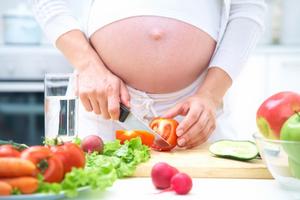
You will find more information about healthy eating during pregnancy in Module 5 entitled "Healthy Diet".
b. Dental Care
Taking care of your teeth is very important during pregnancy. Pregnancy affects every part of your body including your teeth and gums. Plaque develops more rapidly and your gums can become red, sensitive, and infected. It is very important to brush and floss your teeth regularly.
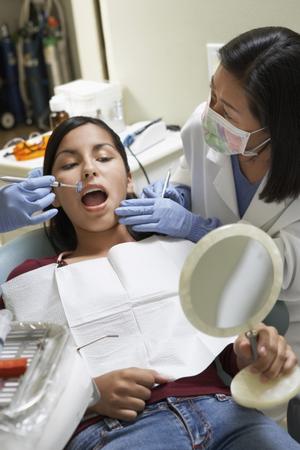
It is recommended that you visit a dentist during your pregnancy. Don't forget to tell him/her that you are pregnant.
Continue to take care of your teeth after the birth of your baby. Your teeth, as well as those of your children, must last for life.
c. Cigarettes
If you are a smoker, there is no better time to quit. When you smoke, so does your baby. Think of what this means before lighting a cigarette.
Even if you don't smoke, secondhand smoke can harm your baby.
This is what happens to the baby when the mother smokes or breathes secondhand smoke.
Creating a Smoke Free Environment for Your Children
A video on the social impact of second-hand smoke on young families. Created by the Best Start Resource Centre
For information about stopping smoking, you can contact the Smokers Helpline.
Smokers' Helpline is a free, confidential service operated by the Canadian Cancer Society
offering support and information about quitting smoking and tobacco use
Website: www.smokershelpline.ca
Phone: 1-877-513-5333
1. The Dangers of Cigarettes
Cigarettes can cause problems both to the mother and the child.
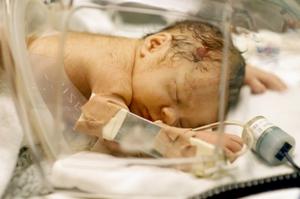 |
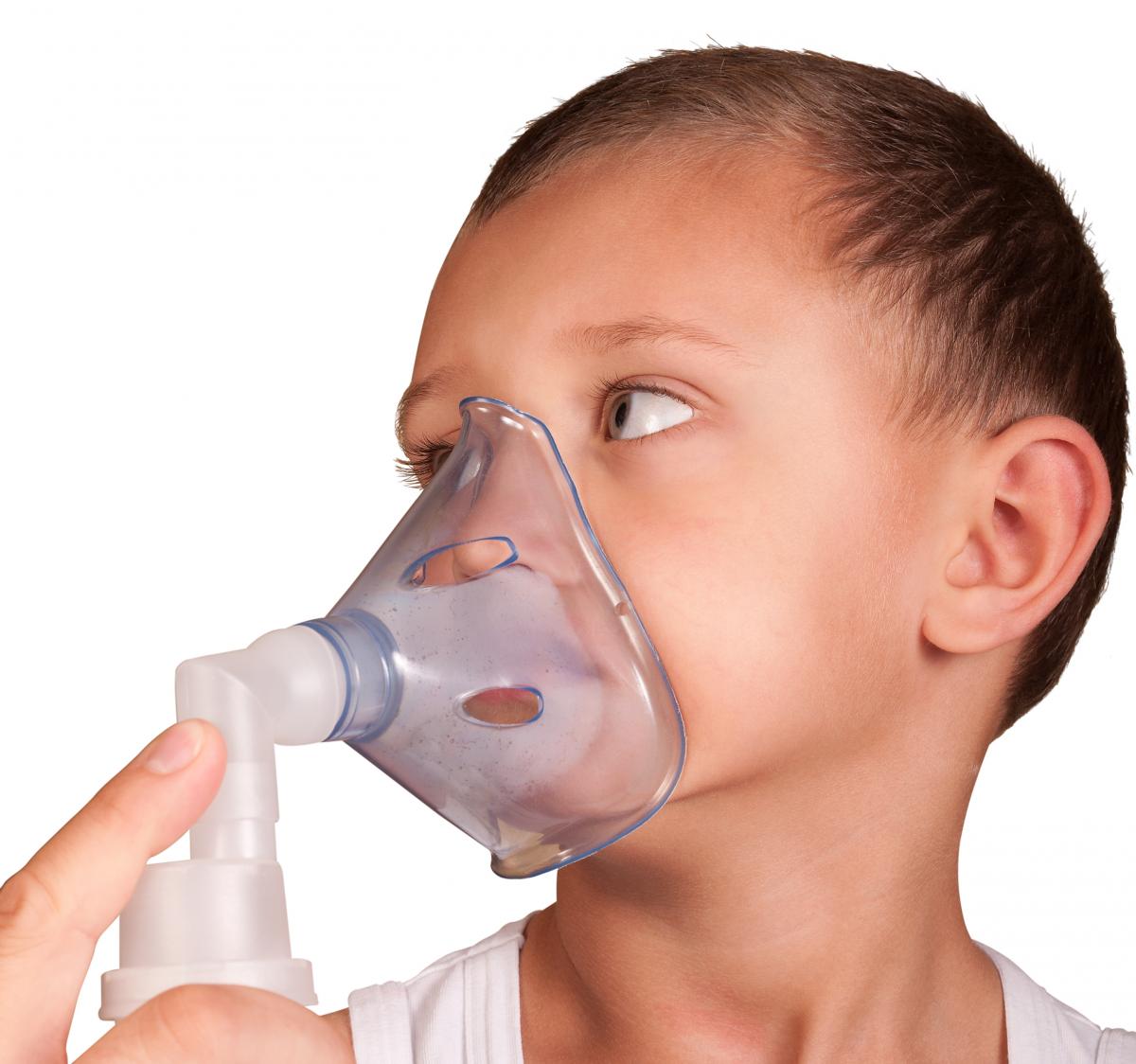 |
 |
| The dangers of cigarettes | ||
Test Your Knowledge
|
|
The following exercise will help you understand why cigarette smoke is dangerous during pregnancy and after the birth of the baby.
Click on the option button that matches the correct answer and validate your answer by clicking on the «Check» button.
|
1 |
Smoking increases the risk of miscarriage. |
|
2 |
Smoking increases the risk of premature birth. |
|
3 |
Smoking can have an effect on the baby's weight at birth. |
|
4 |
Smoking can have an effect on labour and delivery. |
|
5 |
Smoking increases the risk of death in newborns. |
|
6 |
Nicotine found in a cigarette enters the breast milk. |
|
7 |
After the birth, the presence of cigarette smoke in the baby's environment causes less damage. |
2. How to Avoid Smoke
Maybe you think that quitting smoking during pregnancy will increase your stress. However, remember that smoking is a stress for your body. If you smoke, your baby's heart and yours beat faster and your blood pressure is higher. If you quit smoking now, you will protect your baby from the most harmful effects of tobacco. In addition, once at home, your baby will not be exposed to cigarette smoke.
If you live with smokers, explain to them that their smoke can harm your baby. Even when they are not ready to quit, you can set certain rules to decrease the amount of cigarette smoke in your home.
Here is what you can do to reduce cigarette smoke in your environment.
Smoking is an addiction. Everyone knows that it is very difficult to quit smoking but millions of people have succeeded. When you are pregnant, the most important thing you can do for your baby is quit smoking. Talk to your health care provider before using a nicotine patch or nicotine gum.
If you need help to quit smoking, contact Addiction Services, Public Health Offices, Canadian Lung Association, Canadian Cancer Society, your health care provider, the New Brunswick Anti-tobacco Coalition or the Smoker’s Helpline.
Smoker’s Helpline: 1-877-513-5333 or www.smokershelpline.ca/
d. Cannabis
Even though it’s legal for adults in NB to buy cannabis (or marijuana), it should not be used while pregnant or breastfeeding. Using cannabis during pregnancy may cause your baby to be born with a low birth weight. It can also get to your baby in your breastmilk. Cannabis could harm your baby’s brain and lead to life-long problems with learning, hyperactivity, depression, and anxiety. There is no safe amount to use while you are pregnant or breastfeeding. If you find it hard to stop using cannabis, you should try to cut back. Please talk to your health care provider or contact Addiction Services in your area if you need support.
e. Alcohol
When you drink, so does your baby. If you consume alcohol, your baby may be born with FASD (Fetal Alcohol Spectrum Disorder).
FASD includes the abnormalities caused by the consumption of alcohol during pregnancy. FASD is the main known cause of congenital malformations in Canada.
This is what can happen to the baby if the mother drinks alcohol.
Certain damages are not visible at birth but their long-term consequences are serious.
The following table summarizes harm done by alcohol consumption during pregnancy as well as the long-term consequences. Food for thought...
Alcohol, even the smallest quantity, is dangerous during pregnancy. The best thing to do is avoid alcohol during pregnancy.
If you drink alcohol, note that all types are dangerous and that there is as much alcohol in a bottle of beer as in a glass of wine or an ounce of liquor.
If you are a heavy drinker, you may need help to stop. For your health and the health of your baby call the support service agencies for help. You can contact a local addiction service, ask your health care provider or a public health nurse about the programs available in your area.
New Brunswick Addiction Centres: http://www.gnb.ca/0378/centers-e.asp
Public Health Agency of Canada: http://www.phac-aspc.gc.ca/fasd-etcaf/index-eng.php
f. Medication
As soon as you find out that you are pregnant, tell your health care provider about the medications you are taking. These include the medications prescribed by a health care provider and all the products you can purchase in a drugstore such as aspirin, pain killers, cough and cold preparations and even vitamins.

For safety measures, take only medication prescribed by your health care provider and follow the directions carefully.
If you consult with more than one health care provider, be sure that they are all aware of your condition. They should be informed if you are taking medication.
All the medications that you take can affect your baby. Therefore, before taking any type of medication, ask your health care provider, pharmacist, or dentist the following questions.
Here is a list of the most common medicines. You may consult this table to find out more about the risks these medicines represent for your baby during pregnancy.
g. Drugs
If you take drugs such as marijuana, cocaine, heroin, or speed, your baby also takes these drugs. All drugs affect your baby who could develop a dependency to these drugs. Drugs are dangerous for you and your baby.
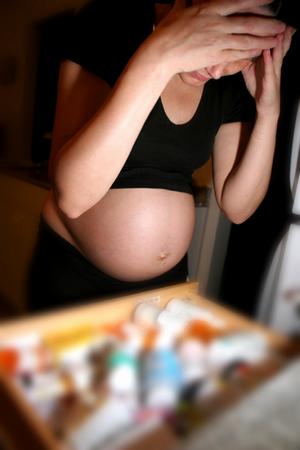
When a woman smokes, drinks, or takes drugs, the baby is subjected to the same effects.
If you take drugs, you may need help to stop. For your health and the health of your baby call a support service agency for help. You can contact a local addiction service or ask your health care provider or a public health nurse about the programs available in your area.
Here is a list of the most common drugs. You may consult this table to find out more about the risks these drugs represent for your baby during pregnancy.
h. Caffeine
Many people take caffeine without knowing it. Did you know that there is caffeine in coffee, tea, colas, chocolate, and many medicines?
 |
 |
 |
 |
| Example of caffeine | |||
Nobody really knows the effects of caffeine on the fetus. We do know that caffeine is a stimulant and it makes people nervous. It is a good idea to reduce the quantity of caffeine.
To what level should you reduce the amount of caffeine? The following suggestions will help you remain within the acceptable limits:
- Drink no more than one or two cups of coffee or tea daily.
- Read the labels on foods, beverages and medicines.
- Select the products with less caffeine.
i. Infection and Illness
Avoiding sick people while pregnant makes sense. Stay away from people who have a cold, a cough, a sore throat, or the flu.

If you are ill during your pregnancy or have flu symptoms, consult your health care provider. Do not take any medication without first consulting your health care provider. If you have a cold or a minor illness, rest, drink a lot of liquid and use a humidifier.
If you have been exposed to a serious illness including Sexually Transmitted Infections (STI), consult your health care provider.
j. Travels and Trips
Your decision to travel depends on your health and the length of the trip. If in doubt, consult your health care provider.
 |
 |
 |
1. Travelling by Car
2. Travelling by Plane
Most airline companies require an authorization letter from a doctor before allowing a pregnant woman to travel during the last month of pregnancy. To avoid problems, check with the airline company before buying your tickets.

Here are a few tips for traveling by plane.
- Wear wide and comfortable shoes in case your feet swell.
- Drink plenty of liquids to prevent dehydration.
- Walk up and down the aisle at least once every hour. If not, move your legs in order to help blood circulation. Support stockings could be useful.
- Avoid crossing your legs.
3. Mandatory Vaccination
If you intend to travel to a foreign country which requires certain vaccinations,consult the Canadian Victorian Order of Nurses (VON) in your area.

Tell them which country you intend on visiting and that you are pregnant. They will tell you if the vaccines you need are safe during pregnancy.
Travel Health: http://www.phac-aspc.gc.ca/tmp-pmv/index-eng.php
k. The Hazards in Your Environment
l. Pregnancy and Work
In most cases, you can continue working during your pregnancy. You may have to rest more and change certain things to be more comfortable at work.
Many women require more rest during the first three and the last three months of their pregnancy. If you can lay down a while on your side during your dinner hour or during the breaks, do it.
1. Strenuous Work During Pregnancy
2. Hazards in the Workplace
In certain workplaces, there are products or devices that can cause malformations or miscarriages. The most important sources of danger are chemicals, solvents, gases, metals, and radiation. If you have any concerns, consult your health care provider. It is up to you to inquire about the risks at your job.

You can also get information from your health and safety committee at work. If there is no committee in your workplace, this may be a good time to organize one with your colleagues.
C. FEELINGS OF THE PREGNANT WOMAN
Pregnancy is a period of growth and changes. Your body changes and so do your feelings.
You may notice that your feelings change often and sometimes very quickly. You will have emotional ups and downs. One minute you will feel happy and the next minute you will feel depressed. These mood swings can be surprising but are normal reactions to all the changes that occur during pregnancy.

a. Sharing Your Feelings
Pregnancy is a normal step in life, but it is also a time when you have to face many changes. Even if you and your partner are happy about the pregnancy, all these changes can be stressful for the couple.
If important events happen in your life that increase your level of stress, try to get outside help to decrease this stress.
Here are a few tips to decrease your level of stress.
Don't let your worries pile up. Talk about your problems and solve them before they take over. If you feel overwhelmed by certain events and can't find a solution, you may need professional help. For your well-being and the well-being of your baby, do not hesitate to ask for help.
b. Violence Against Women
Violence against women often begins during the first pregnancy. All forms of violence can be harmful and must be taken seriously.

There are different types of violence. The following table will help you recognize the different types.
A woman victim of violence can feel anxious, depressed, have little self-esteem, take drugs and alcohol, have difficulty sleeping and lose her appetite.
Physical aggressions during pregnancy can cause serious injuries to the mother and bring about a premature birth or a low birth weight baby. The baby could also have broken bones or a hemorrhage. Certain mothers have lost their babies following physical violence.
If you are a victim of violence during your pregnancy, you probably feel alone. You need help immediately.
Nobody deserves to be treated badly, certainly not your baby. Talk to someone about your feelings and concerns. This person may be your health care provider, a public health nurse, a member of the clergy, or anybody you trust can help you.
c. Sexuality
Your sexuality is part of you. Since your life, your body, and your feelings change during your pregnancy, so do your sexual desires.

In most cases it is normal and without risk to have sexual relations. If your pregnancy is going well, sexual relations will not harm the baby.
However, the health care provider may advise you to avoid sexual relations in the following situations:
- If your placenta is attached on the lower part of your uterus near the cervix. This situation is referred to as placenta previa.
- If your cervix opened too soon during a previous pregnancy. This situation is referred to as cervical incompetence.
- If you had premature labour without a reason during a previous pregnancy.
- If there is a possibility that you could go into labour too soon or have a miscarriage.
- If your water has broken.
- If you or your partner has an infection including sexually transmitted infections (STI)
If your health care provider advises you to avoid sexual relations, don't forget to ask when you can begin having sexual relations again.
It is normal that your sexual desires as well as your partner's sexual desires change during your pregnancy. Many things can influence you and your partner's attitude regarding sex. The best thing to do is to talk to each other and try to understand each other's feelings.
Test Your Knowledge
|
|
The following exercise will answer many questions you may have about sexuality during pregnancy.
Click on the option button that matches the correct answer and validate your answer by clicking on the «Check» button.
|
1 |
During pregnancy sexual relations with penetration |
|
2 |
During the three first months of pregnancy, the woman's sexual desires |
|
3 |
During pregnancy, the man's sexual desires |
|
4 |
If you do not feel like making love during pregnancy, the best thing to do is |
|
5 |
For the pregnant woman, the best time to appreciate sexual relations is usually |
|
6 |
Near the end of the pregnancy when the belly becomes too large, the best thing to do is |
d. The Importance of Taking Time For Yourself
D. BUYING FOR THE BABY
Assuring the baby's security is the parents' responsibility. Babies cannot recognize danger. You must consider security and comfort when you are purchasing new or used items for your baby or when you receive a gift. There are many items for babies on the market but only a few are essential.
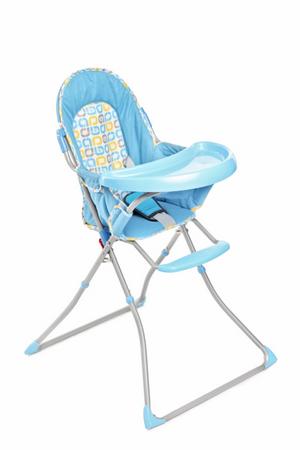 |
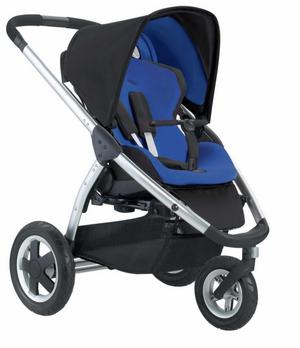 |
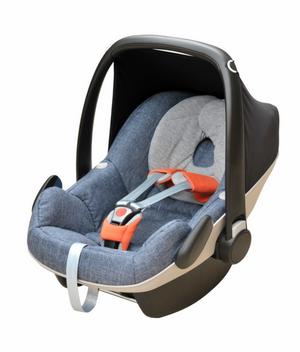 |
 |
If you receive or buy a used article for your baby, make sure that it is safe, solid, and in good condition. Check to be sure there are no missing parts, cracks, sharp edges, loose parts, holes, or spaces large enough for the baby to get caught.
Articles sold for babies in Canada are subjected to certain standards. Make sure that the manufacturer's instructions are included and that the article is not the object of a recall. A label containing information on the manufacturer should be attached permanently to the product that you buy or receive as a gift. For more information about the security of baby products, consult Health Canada's web site.
http://www.hc-sc.gc.ca/cps-spc/index-eng.php
The security of baby products will be discussed later in Unit 8 entitled The Healthy Family.
CONCLUSION
Pregnancy is a privileged moment filled with promises and changes. It can be a happy time but also a time of worry. It is a good time to begin a new, healthy lifestyle that will be beneficial for you, your baby, and your family.
The more information you have about your pregnancy, the more you will learn and the more self confidence you will have. You will be able to enjoy this special time and hold on to souvenirs that you will be able to share later with your child.
Take care of yourself. Let your close ones spoil you and share with them these precious moments of your pregnancy.
Enjoy a healthy pregnancy!


